#marisa paredes
Explore tagged Tumblr posts
Text

Marisa Paredes
Fotografía de Manuel Outumuro
96 notes
·
View notes
Text

Si tienes un hondo penar, piensa en mi Si tienes ganas de llorar, piensa en mi Ya ves que venero tu imagen divina Tu parvula boca, que siendo tan niña Me enseño a pecar Piensa en mi cuando sufras Cuando llores, tambien piensa en mi Cuando quieras quitarme la vida No la quiero, para nada Para nada, me sirve sin ti
MARISA PAREDES (1946 – 2024) 🌹
60 notes
·
View notes
Text

Marisa Paredes by Roberto Álamo
33 notes
·
View notes
Text












Todo sobre mi madre (1999)
#todo sobre mi madre#pedro almodóvar#cecilia roth#penelope cruz#marisa paredes#antonia san juan#cinematography#all about my mother
56 notes
·
View notes
Text

Marisa Paredes (1946/2024 R.I.P.) 😢
43 notes
·
View notes
Text

#movies#polls#all about my mother#todo sobre mi madre#90s movies#pedro almodóvar#cecilia roth#marisa paredes#candela peña#antonia san juan#penélope cruz#requested#have you seen this movie poll
46 notes
·
View notes
Text

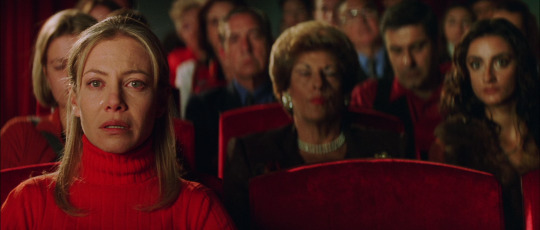
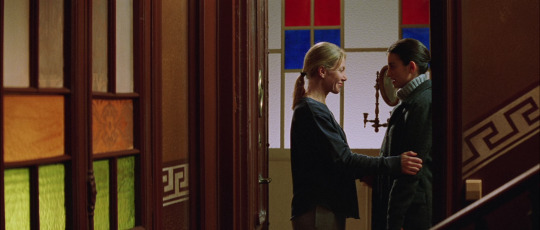
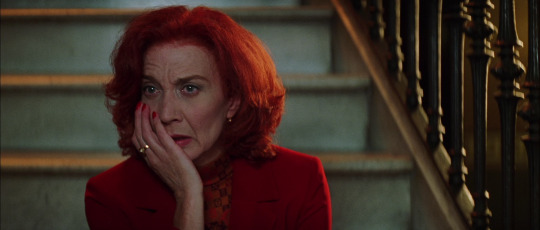

All About My Mother (1999) Director: Pedro Almodóvar DOP: Affonso Beato Art Direction: Antxón Gómez
#cinematography#film stills#screencaps#movie screencaps#all about my mother#todo sobre mi madre#pedro almodóvar#cecilia roth#candela peña#penélope cruz#marisa paredes#spanish cinema#90s movies#90s films#90s aesthetic#the colors in this movie tho
175 notes
·
View notes
Text



Success has no taste or smell
#todo sobre mi madre#all about my mother#pedro almodóvar#Cecilia Roth#marisa paredes#Manuela Echevarria#Huma Rojo#movie scene#scenephile#movie quotes#film quotes#movie scenes#film scene
86 notes
·
View notes
Text















The Devil's Backbone (Guillermo del Toro , 2001)
#The Devil's Backbone#Guillermo del Toro#Guillermo Navarro#Marisa Paredes#Eduardo Noriega#Federico Luppi#Fernando Tielve#Ínigo Garces#Irene Visedo#Junio Valverde#Juan Carlos Vellido#Film
15 notes
·
View notes
Text
Marisa Paredes a través del cine de Almodóvar:
· Entre Tinieblas, 1983
· Tacones Lejanos, 1991
· La Flor De Mi Secreto, 1995
· Todo Sobre Mi Madre, 1999
· Hable Con Ella, 2002 (cameo)
· La Piel Que Habito, 2011
#cinema#almodóvar#pedro almodóvar#marisa paredes#entre tinieblas#darks habits#tacones lejanos#la flor de mi secreto#todo sobre mi madre#all about my mother#hable con ella#talk to her#la piel que habito#the skin i live in
44 notes
·
View notes
Text

Marisa Paredes
Spanish star of films by Pedro Almodóvar, Guillermo del Toro and Roberto Benigni, and a champion of leftwing causes
The actor Marisa Paredes, who has died suddenly aged 78, was renowned for her elegance and “calm grace, that gentle cheerfulness that she ignited with one look of her pale eyes”, in the words of Gilles Jacob, former president of the Cannes film festival. She is best known for her roles in six films directed by Pedro Almodóvar.
After seeing her in a play, Almodóvar cast her as Sor Estiércol (Sister Manure) in Entre Tinieblas (Dark Habits, 1983). Later, she starred in his surreal melodrama Tacones Lejanos (High Heels, 1991). For her performance as a writer of romantic novels in his slightly more sober La Flor de Mi Secreto (The Flower of My Secret, 1995), she was nominated for a Goya best actress award. She also featured in Almodóvar’s Oscar-winning Todo Sobre Mi Madre (All About My Mother, 1999).
She became one of Spanish cinema’s great figures, but was also outspoken throughout her life in support of leftwing causes. As president of Spain’s film academy from 2000 to 2003, she attacked the participation of José María Aznar’s Conservative government in the planned invasion of Iraq. Her televised speech at the annual Goya awards in 2003 helped mobilise mass demonstrations: “There is no need to be afraid of culture, entertainment or freedom of expression, and much less satire or humour. We should be afraid of ignorance and dogmatism. We should be afraid of war.”
In the 1980s Paredes built a solid reputation in Spanish cinema, working with up-and-coming young directors, such as Fernando Trueba in Ópera Prima (Debut, 1980), Jaime Chávarri, Jaime Rosales and Agustí Vilaronga in Tras el Cristal (In a Glass Cage, 1986). Her performance in Vilaronga’s macabre anti-Nazi film was her own favourite. For José Sacristán’s comedy Cara de Acelga (Like Death Warmed Up, 1987) she was nominated for a Goya as best supporting actress.
In the 90s, her leading parts in Almodóvar films broadened her career into international cinema. She worked with Alain Tanner in France, Manoel de Oliveira in Portugal and shot two films with the Mexican Arturo Ripstein: Pintura Carmesí (Deep Crimson, 1996) and El Coronel No Tiene Quien le Escriba (No One Writes to the Colonel, 1999), a successful adaptation of a Gabriel García Márquez novel. She was in the Italian Roberto Benigni’s La Vita è Bella (Life Is Beautiful, 1997) and Guillermo del Toro’s El Espinazo del Diablo (The Devil’s Backbone, 2001). Over her six-decade career, she acted in more than 70 films.
The youngest of four daughters, Marisa was born in Madrid, in the block of flats on Plaza de Santa Ana where her mother, Petra (nee Bartolomé), was the concierge. Her father, Lucio Paredes, worked in the El Águila beer factory. These were years of hunger after the civil war (1936-39) and her family was poor. From the age of six, she told her mother she wanted to be an actor: the Teatro Español, one of the city’s main theatres, just across the square from her home, inspired her. Reasonably, her parents opposed this insecure career: they aspired for her to become a secretary. Paredes was always proud of her working-class origins. “My elegance comes from my grandfather, who was a farm-worker,” she would say.
Focused on her ambition, she left school aged 11, defeated parental opposition to study at the Madrid dramatic arts school and pushed her way into small film roles at the age of 14. In 1962 she met Fernando Fernán-Gómez, anarchist and brilliant actor and director, who helped mould both her acting and her view of the world. She acted in his film El Mundo Sigue (The World Continues, 1965).
In the 60s and 70s she worked in many films without breaking through to leading roles. The story was different on Televisión Española, where she acted in around 80 plays, often dramatisations of novels. “I had the good fortune that, as I don’t look Spanish ... when television was cultured and broadcast plays, I was in all the dramas of Chekhov, Dostoevsky, Ibsen. I was the Russian soul,” Paredes explained. She was an all-round talent, acting not just in theatre and highbrow TV, but in musicals, comedies and even a spaghetti western.
With her height, aristocratic bearing and blond hair, Paredes was reminiscent of a classic Hollywood star. Yet she was not vain: she had a warm smile and generous nature, and had the enthralling gift of great screen actors of expressing emotion with a single look or grimace.
She won prizes for her theatre, television and film work, and an honorary Goya for her career in 2018.
Paredes supported #MeToo vigorously and campaigned in the July 2023 general election for Sumar, the junior leftwing partner in Spain’s coalition government. As recently as 30 November, she read the manifesto in a demonstration against Israel’s actions in Gaza. She understood her political commitment in no narrow terms: “Freedom, education and culture are fundamental to human life. This is what remains. Art is what remains.”
Paredes had a daughter, María, with the film director Antonio Isasi-Isasmendi in 1975. From 1980 until her death she lived with José María Prado, director for 27 years of the Filmoteca Española (Spain’s film institute). She did not believe in marriage.
Prado and María survive her.
🔔 Marisa (María Luisa) Paredes Bartolomé, actor, born 3 April 1946; died 17 December 2024
15 notes
·
View notes
Text

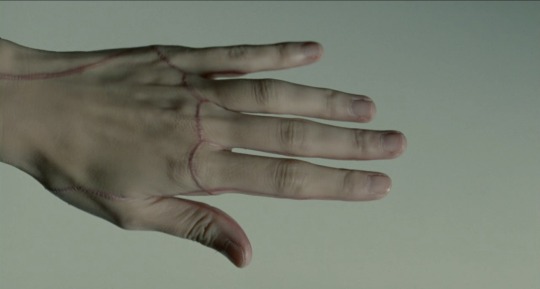


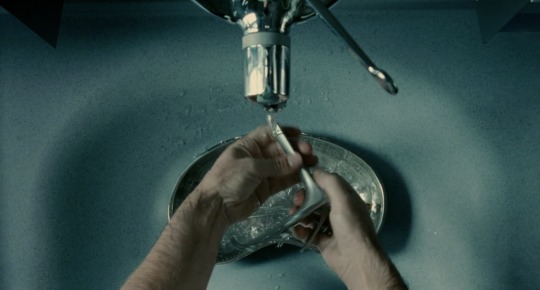
“The things the love of a mad man can do.”
The Skin I Live In (2011) dir. Pedro Almodóvar
#the skin i live in#pedro almodóvar#antonio banderas#elena anaya#jan cornet#marisa paredes#horror#horror film#film screencaps#film stills#films#screencaps#cinematography
173 notes
·
View notes















